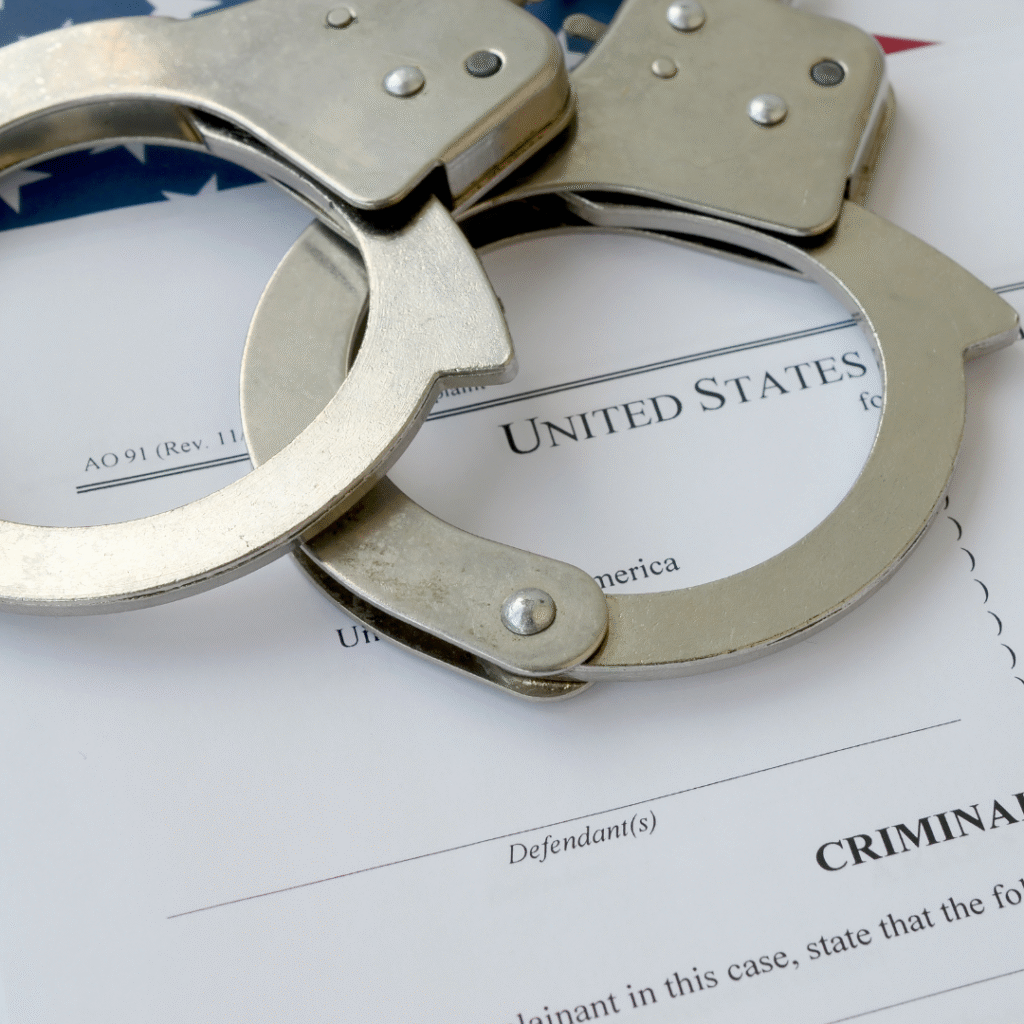Canton Man Pleads Guilty in $4M Medicare DME Fraud Scheme

August 25, 2025 | JacobiJournal.com – A Canton man has pleaded guilty in a $4 million Medicare durable medical equipment (DME) fraud scheme involving medically unnecessary orthotic braces and deceptive telemarketing practices. The scheme is part of a broader federal crackdown under the $14.6 billion nationwide Healthcare Fraud Takedown. Federal prosecutors announced that a Massachusetts-based DME provider admitted to defrauding Medicare by billing for orthotic braces that were either not medically necessary or never provided to patients. The defendant, whose identity was released in court filings, used aggressive telemarketing tactics to obtain patient information and physician orders, often without proper medical evaluation. Between 2018 and 2022, the defendant submitted millions in false claims to Medicare for back, knee, wrist, and shoulder braces, resulting in more than $4 million in fraudulent reimbursements. How the DME Fraud Scheme Worked According to the Department of Justice, the Canton man paid overseas and domestic telemarketing companies to cold-call Medicare beneficiaries, offering free or low-cost medical equipment. Once the patient information was obtained, the scheme funneled bogus or forged prescriptions through complicit medical professionals. These orders were then billed to Medicare, even though many patients never received or needed the braces. The DME company also allegedly disguised kickbacks as “marketing fees” and “consulting payments” to conceal the fraud. Federal Crackdown and Takedown Operation This case is part of the U.S. Department of Justice’s 2025 National Healthcare Fraud Enforcement Action, which has resulted in criminal charges against over 200 individuals nationwide. The coordinated action targeted schemes involving telemedicine, DME fraud, pharmacy billing, and opioid distribution — with total intended losses exceeding $14.6 billion. DOJ Statement on the Guilty Plea “Healthcare fraud drains taxpayer dollars, endangers patients, and undermines trust in our medical system,” said Acting U.S. Attorney Joshua S. Levy for the District of Massachusetts. “This guilty plea sends a strong message to those exploiting Medicare: we will hold you accountable.” Sentencing for the defendant is scheduled for later this year. He faces up to 10 years in federal prison, restitution, and forfeiture of assets acquired through fraud. Workers, Patients & Providers: Know Your Rights Medicare beneficiaries are urged to report suspicious calls, billing statements, or unsolicited medical devices. Healthcare providers should maintain strict compliance programs and verify telehealth claims carefully. For full details on this case and other healthcare fraud enforcement actions, visit the U.S. Department of Justice – District of Massachusetts official press release section. FAQs: Canton Man Pleads Guilty Who is the Canton man that pleaded guilty in the Medicare DME fraud case? The man who pleaded guilty was the owner of a DME company that used telemarketing and false medical claims to bill Medicare for unneeded orthotic devices. What was the total amount involved in the DME fraud scheme? The man pleaded guilty to defrauding Medicare of over $4 million through false claims for unnecessary medical equipment. How does this DME fraud case connect to the nationwide healthcare fraud takedown? This DME fraud case is part of the broader $14.6 billion healthcare fraud takedown, which involved hundreds of defendants across the United States. What penalties could he face after pleading guilty? He could face up to 10 years in federal prison, restitution payments, and forfeiture of any assets obtained through the $4 million fraud. Stay ahead of fraud cases, legal updates, and compliance alerts. Subscribe to JacobiJournal.com today for trusted reporting on white-collar crime, healthcare enforcement, and regulatory actions. 🔎 Read More from JacobiJournal.com:
DOJ-HHS False Claims Act Working Group Intensifies Enforcement After $14.6B Takedown

August 11, 2025 | JacobiJournal.com – Following the historic $14.6 billion healthcare fraud takedown, federal agencies are doubling down on enforcement efforts under the reactivated False Claims Act Working Group, signaling an aggressive new era of oversight targeting fraudulent billing across the healthcare industry. The interagency team—led by the Department of Justice (DOJ) and the Department of Health and Human Services (HHS)—has not only revived the Working Group but is reportedly expanding its reach into newly flagged sectors, including behavioral health, teletherapy, and rural clinic billing models. New Investigations Already Underway According to DOJ insiders, a second wave of investigations is now underway, focusing on fraudulent claims involving telehealth services, durable medical equipment (DME), and unnecessary genetic testing. These schemes often prey on vulnerable populations and exploit regulatory gaps that emerged during the pandemic. While the initial healthcare fraud takedown charged 324 defendants—including medical professionals, clinic operators, and telehealth company executives—officials warn that this was just the “first phase” of a longer-term crackdown. “False Claims Act enforcement is now a frontline priority,” stated an official familiar with the task force. “We’re looking at everything from upcoded services to kickback arrangements involving marketing firms and call centers.” Enhanced FCA Enforcement Tools in Play Key to this effort is the strategic use of the False Claims Act (FCA), which allows the government—and whistleblowers—to bring civil actions against entities defrauding federal healthcare programs. By leveraging FCA provisions, the DOJ recovered more than $2.7 billion in healthcare fraud settlements in 2024 alone. As part of the intensified enforcement strategy, the DOJ-HHS Working Group is coordinating with: These collaborations are supported by enhanced data analytics tools that allow agents to identify anomalous billing patterns across Medicare, Medicaid, and TRICARE in near real-time. This integrated approach strengthens the government’s ability to execute large-scale healthcare fraud takedown operations, ensuring that fraudulent providers are identified and prosecuted efficiently. Industry Bracing for Fallout Legal analysts say the revived working group has put the industry on alert. “With this level of federal scrutiny, even compliant providers need to reassess their billing practices, referral relationships, and marketing vendors,” said a healthcare fraud defense attorney. “The government isn’t just targeting bad actors—they’re examining entire care delivery ecosystems.” In the wake of the takedown, several health systems and DME suppliers have launched internal audits, fearing that even minor regulatory violations could result in federal scrutiny or whistleblower claims. Compliance Tips for Providers Providers and healthcare businesses should take the following immediate actions to mitigate exposure: Experts caution that in today’s climate, ignorance of the law offers no defense. What’s Next? More arrests and settlements are expected in the coming months as the DOJ and HHS continue reviewing data and evidence collected during the healthcare fraud takedown operation. Industry stakeholders should anticipate ongoing False Claims Act enforcement waves well into 2026. For full case summaries and press releases, visit the DOJ’s official newsroom here. FAQs: DOJ False Claims Act Enforcement Update What is the False Claims Act Working Group? The DOJ-HHS False Claims Act Working Group is a task force dedicated to investigating and prosecuting healthcare fraud involving federal programs like Medicare and Medicaid. Why is FCA enforcement increasing now? Federal agencies are responding to widespread abuse of healthcare programs—especially telehealth and DME schemes—uncovered during the $14.6 billion fraud bust. The revived working group enables cross-agency coordination for faster and broader enforcement. How can healthcare providers avoid False Claims Act liability? Healthcare providers must ensure accurate billing, avoid illegal referral arrangements, and maintain documented compliance programs. Regular audits and staff training are essential. Subscribe to JacobiJournal.com to receive weekly enforcement updates, whistleblower case alerts, and FCA litigation insights tailored for legal, compliance, and health sector professionals. 🔎 Read More from JacobiJournal.com: